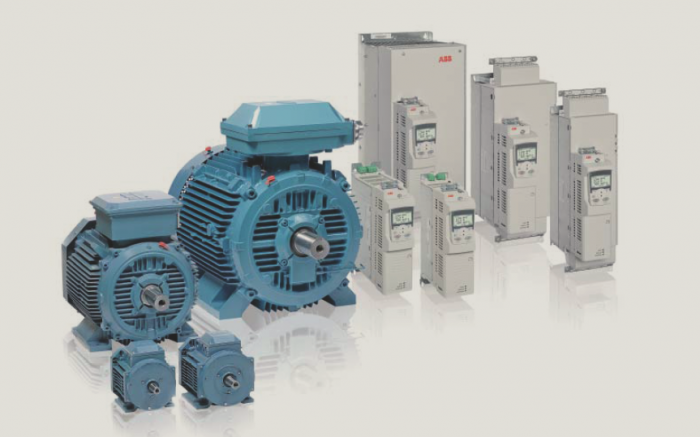The Synchronous Reluctance Motor by ABB for maximum efficiency and reduced energy costs
ABB manufacture highly efficient electric motors and drives that deliver the ultimate in process control to the customer, providing customers with maximum energy efficiency, high product through-put and excellent feedback & control over their process application.
The PIF team had the opportunity to interview product specialist Dan Banks at the Pump Centre conference at Telford, UK. The theme of the show was ‘The Future of Fit For Purpose Pumping’. ABB’s stance to the Future of Pumping is to focus on the 'whole-life-cost' model in their product development.
“We need products that will save on maintenance costs, energy costs and installation costs – not just cheaper products at the outset. We need to look at the whole–life cost model and deliver products that save costs at every level”.
ABB Synchronous Reluctance Motor Drive Packages
ABB were exhibiting their Synchronous Reluctance Motor Drive Packages which are essentially very efficient, very power dense motors that offer the user extreme efficiency in process control.
The Synchronous Reluctance Motor gives the end-user the best of both worlds. The advantages of permanent magnet technology together with the simplicity and service-friendliness of an induction platform. Each motor-drive package combines proven stator technology, an innovative magnet-free rotor design, a best-in-class industrial drive and advanced software to offer a complete, optimised solution.

The SynRM saves significant costs at South Staffordshire water
At Somerford Pumping Station the company needed to replace a 20-year old, 115 kW induction motor used to control a single vertical shaft driven borehole pump which abstracts 2.5 million liters of water each day. The IE2 motor was already using an ABB drive, ACS800, and had therefore maximized the process energy saving opportunities presented by the drive’s flux optimization function. The utility was interested in trialling the synchronous reluctance motor to harness its benefits including higher efficiency, greater reliability, lower heat loss, less noise and reduced maintenance costs.
The installation meant removing the existing drive and replacing it with an ABB drive, ACS850, featuring a more powerful core processor that enables operation with the synchronous reluctance motor along with the next generation direct torque control (DTC), which avoids the need for encoders and speed feedback devices.
By installing the Synchronous Reluctance Motor South Staffordshire water saved 6% on energy consumption, reduced audible noise by 75% and reduced heat into their plant-room by 57% - all extremely significant benefits for the application. Keith Marshall, Supply Director at South Staffs Water comments;
“The biggest benefit, above all others, is the 6 percent reduction in energy. While being one of the most efficient companies in the industry, our electricity bill is more than £9 million per year and rising through increases in wholesale energy prices. Pumping water accounts for some 90 percent of this spend as we have one of the highest pumping head of any UK water utility because of the deep boreholes and hilly terrain within our area of supply. So a 6 percent reduction on one pump in a system that was already very efficient is massive news for us.”
Click for more information on the ABB Synchronous Reluctance Motor
Get the latest process industry news
Interested in receiving even more industry-leading news from Process Industry Forum delivered directly to your inbox? Then sign up to our free newsletter. Bringing you the latest news, trends, innovations and opinion from across the process industry, our exclusive newsletter gives you all the industry insights of the moment in one, easy-to-digest bulletin. Stay ahead of the competition with regular process industry news instalments from PIF.

